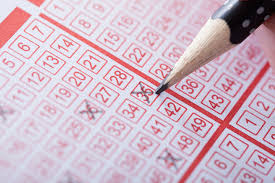
When people ask me what I do, I reply that I am a writer. Words and language are my special interest a consolation prize for my autism spectrum disorder. Writing and reading comprehension are a result of my obsessive study. I’ve put hours of hard work into understanding written communication. It exasperates me that most of the people I meet believe they have the ability to write a the next great American novel. Often, they comment that they’ve always wanted to write a book.
My response: I’ve always wanted to build a spaceship and visit “the star” Pluto, but I readily admit that I don’t know anything about rockets or jet propulsion. But, I don’t walk around telling people I can build a functioning rocket without first learning about space.

Why is it that writing is so accessible when rocket science is viewed as a difficult subject to master? Why do the people who have not studied language and don’t know the parts of speech believe they know quality of writing on sight? This view is disrespectful to those, like me, who can identify high quality written work and explain why it is high quality. It is equally disrespectful for me to go up to a rocket scientist and tell him I can build a better rocket than him.
During my foray into the publishing industry, I’ve discovered those who write well, don’t go around bragging about their abilities. In fact, true “experts” seem to believe that there is always a lot more to learn about their discipline.
For me, part of the reason I write, is because it is challenging to write well. Language is evolving, so there is always more to learn. In addition, there are many different kinds of writing: persuasive writing, nonfiction, memoir, essays, blogs, emails, poetry and, of course, the novel. When I grow skilled at one type, I move on to another.
Part of the problem is that people are misinformed and believe writers write the way they speak. Verbal and written communication are in no way related. The fact is that just because you speak well doesn’t mean you will write well.
 In this modern technological age, it’s easy to fall into a trap and believe you can write well. After all, the majority of our communication is written, but texting, social media and emails are not the same as writing. At best, they resemble speech in that they can be truncated and repetitive with an obtuse meaning. Miscommunication occurs regularly using these avenues, because many people forget about nonverbal communication.
In this modern technological age, it’s easy to fall into a trap and believe you can write well. After all, the majority of our communication is written, but texting, social media and emails are not the same as writing. At best, they resemble speech in that they can be truncated and repetitive with an obtuse meaning. Miscommunication occurs regularly using these avenues, because many people forget about nonverbal communication.
When speaking, our meaning and emotion are conveyed with body language, facial expressions, gestures, tone of voice and inflection. So, taking nonverbal language for granted when messaging and texting, there is no context to use to determine what the other person is trying to communicate.
When writing, if one is aware of nonverbal communication’s role in speech, one uses words to establish the meanings and emotions the reader experiences. This cannot be achieved effectively without knowledge of sentence structure, parts of speech, grammar and words.

In our society, writing well is a rare skill, but the common belief is that people who spend the day texting and on social media write all day long, so they must be excellent writers. However, give one of these people a sheet of paper and ask them to write something and they are revealed as frauds.
Spelling, grammar, punctuation and meaning are not things most people think about when they post of Facebook or text their friend. Yet, they should and if they were good writers, they would. I do. I revise every few words I write a few times for meaning and with a consideration for audience.
My point to this rant is that the next time you consider becoming Steven King or J.K. Rowling, think about what you actually know about language. Writing a novel is not a “get rich quick scheme.” It’s much easier to win the lottery, especially if you don’t want to put in the work. Although, filling in those sheets is another skill to master.

So, budding novelists out there, ask yourself if you like words and language? Do you know the difference between a noun and verb? What parts of speech make a sentence? Can you tell the difference between to, too and two or its and it’s? What is an apostrophe and how is it used?
Most importantly, would you like to know those those things?

The last question is the most important.
If you aren’t interested in these things, play the lottery. It’s better odds.
If you are, though, buy into the hype and begin your own study.

